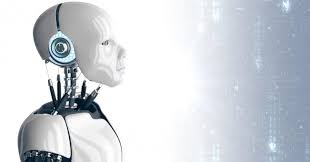Source: ibtimes.sg
Artificial intelligence (AI) seems to be taking over the world and is even helping us combat the ongoing coronavirus pandemic, but so far it has been a product of human supervision – we teach computers to see patterns, just like we teach children to read. However, researchers believe the future of AI depends on systems that are capable of learning on their own, without any supervision.
What is supervised learning?
When a parent points towards a dog and tells the baby to “Look at the doggie,” the child learns and understands what to call the furry four-legged friends. This is an example of supervised learning, as pointed out by New York Times. However, when the baby stands and stumbles, over and over again, before she learns how to walk, that is something else.
Computers and humans are quite similar when it comes to learning. Just as we learn mostly through observation or trial and error, computers also have to pass through the stage of supervised learning before they can reach the human-level of intelligence.
Even if a supervised learning system reads all the books in the world, it would still not be able to achieve human-level intelligence because a large chunk of our knowledge and expertise is not penned down.
Limitations of human supervision
Supervised learning comprises of feeding data, including images, audio, or text that is fed into computer algorithms, which teams machines to do what they do. However, this learning method has its restrictions.
“There is a limit to what you can apply supervised learning to today due to the fact that you need a lot of labeled data,” said Yann LeCun, an expert in the field of machine learning and artificial intelligence, and a recipient of the Turing Award, the equivalent of a Nobel Prize in computer science, in 2018. He is also the vice president and chief A.I. scientist at Facebook.
Although learning methods that are not dependent on such human intervention are less explored, they have been overshadowed by the success of supervised learning and its many practical applications in the real world, from self-driving cars to smart speakers. But supervised learning still can’t do many of the tasks that are simple enough even for a toddler.
Artificial intelligence that learns on its own
Therefore, scientists leading the charge of artificial intelligence research have shifted their focus to less-supervised learning methods in which the artificial intelligence develops a common sense or sorts and carries out tasks by learning on its own.
“There’s self-supervised and other related ideas, like reconstructing the input after forcing the model to a compact representation, predicting the future of a video or masking part of the input and trying to reconstruct it,” said Samy Bengio, a research scientist at Google.
Scientists are also exploring reinforcement learning, which requires very limited supervision and does not rely on data. This learning method, pioneered by University of Alberta’s Richard Sutton, follows a reward-driven learning mode, essentially like a dog performing a trick to earn a treat. The strategy has been developed to teach computer systems to learn new actions on their own.
All they need to do is set a goal, and a reinforcement learning system will try to achieve the said goal through trial and error until it is consistently receiving a reward. A more appropriate term for this future AI is “predictive learning,” which means that systems not only recognize patterns but also predict outcomes and choose a course of action autonomously.
For instance, if a self-supervised computer system “watches” millions of videos on YouTube, it will gather a representation of the world from the clips and when the machine is asked to perform a particular task, it can take action based on what it has learned from the videos – in other words, teach itself.


